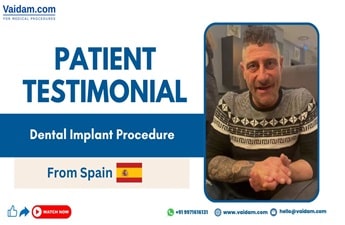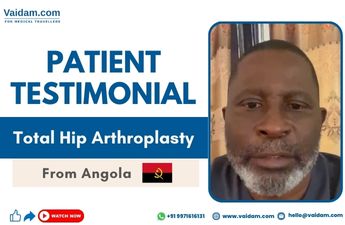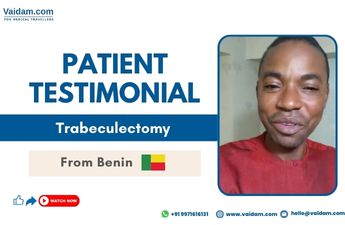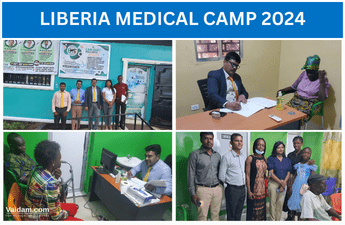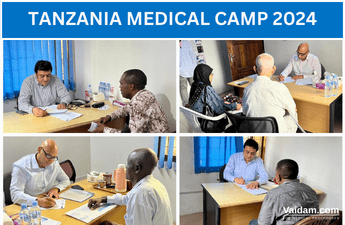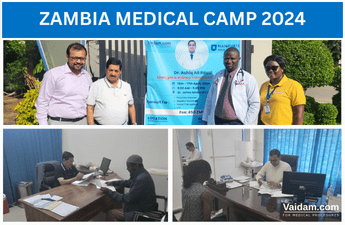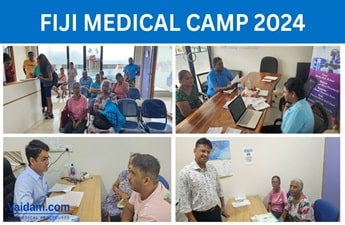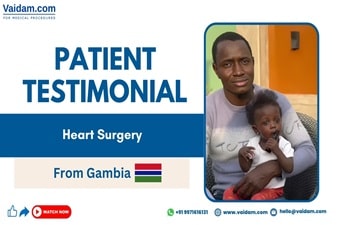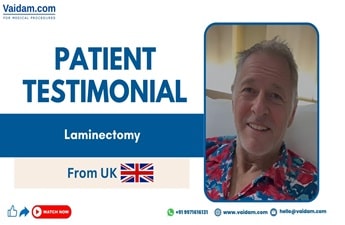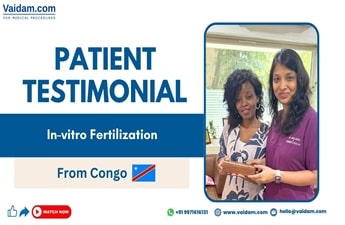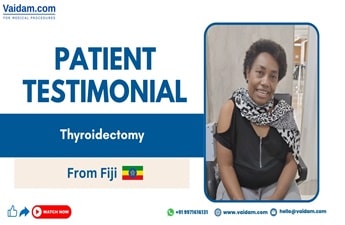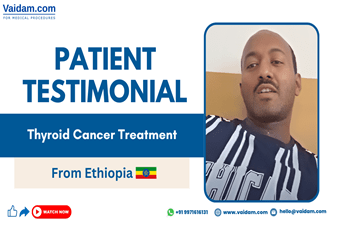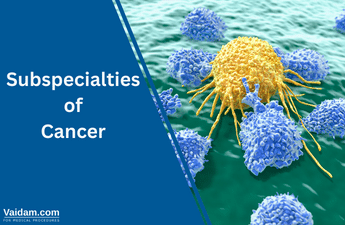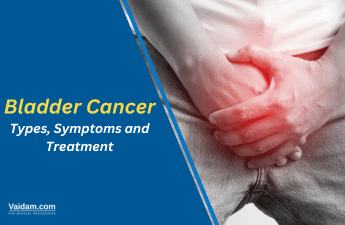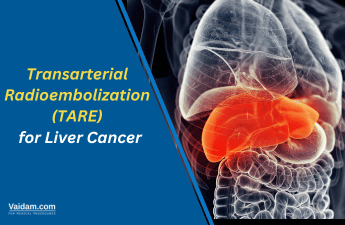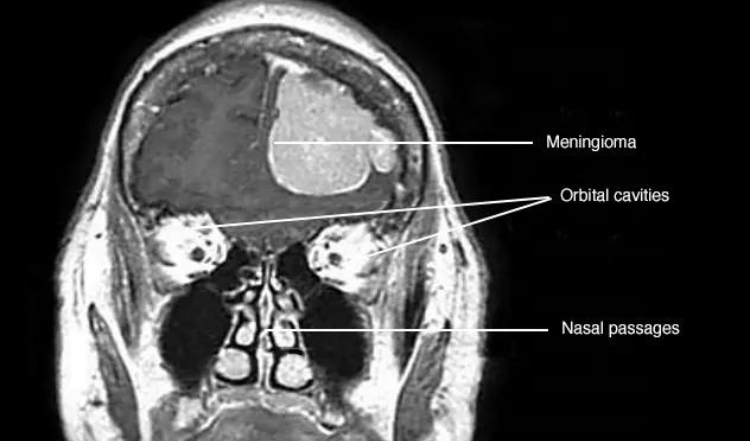
Meningioma treatment in Turkey costs between USD 13500 to USD 16500. The total cost of the treatment also depends on the diagnosis and facilities opted for by the patient.
Meningioma, a primary central nervous system (CNS) tumor, begins in the brain or spinal cord. About 30% of all primary brain tumors are meningiomas. However, higher-grade meningiomas are very rare.
In 2015, the worldwide incidence of primary brain tumors was estimated to be 10.82 per 100,000 people yearly. The mean age is 66 years, with a female-to-male ratio of 2.3:1. There is a higher incidence in African Americans, with a female-to-male ratio of 2.27:1.
Get in Touch with Medical Experts
What are the Symptoms of Meningioma?
The slow-growing characteristics of meningiomas often only make them noticeable once significant. Sometimes meningiomas may remain asymptomatic for a patient's lifetime or are detected unexpectedly during a brain scan for unrelated symptoms.
Symptoms of meningiomas may include:
- Headaches
- Progressive focal neurologic deficit
- Confusion
- Nausea or vomiting
- Seizures
- Change in personality or behavior
- Hearing loss or ringing in the ears
- Visual disorders
- Muscle weakness
- Drowsiness
Symptoms can also be explicitly related to the location of the meningioma, such as:
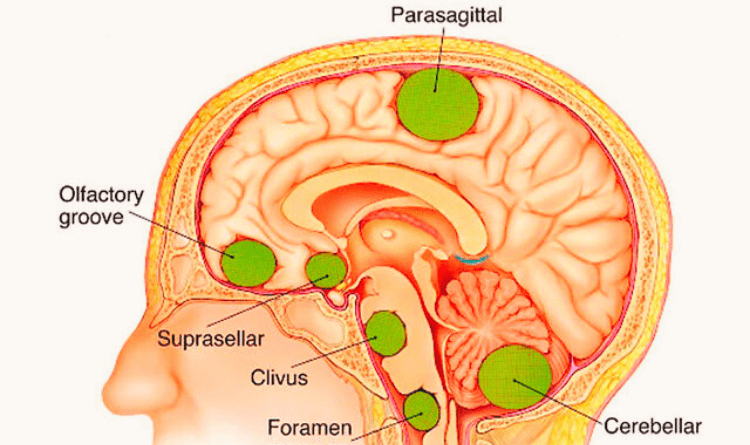
- Falx and Parasagittal: Impaired brain functioning levels, such as reasoning and memory. It could cause leg weakness/numbness or seizures if located in the middle section.
- Convexity: This may cause seizures, headaches, and neurological deficits.
- Olfactory Groove: Results in loss of smell due to nerve compression between the brain and the nose. Vision problems may occur due to optic nerve compression if the tumor grows large enough.
- Sphenoid: This may result in vision problems, seizures, or facial numbness.
- Suprasellar: This may cause vision problems due to the optic nerves/chiasm compression.
- Posterior Fossa: This may cause unsteady gait, problems with coordination, facial symptoms, or loss of hearing due to compression of cranial nerves.
- Intraorbital: This may cause pressure buildup in the eyes, leading to potential vision loss.
- Intraventricular: This may block the flow of cerebrospinal fluid, resulting in obstructive hydrocephalus, which may lead to lightheadedness, headaches, and changes in mental function.
- Spinal: This may result in back pain or limb pain caused by nerve compression that runs into the spinal cord.
Risk Factors of Meningioma
- Age: The risk of meningioma increases with age, with a surprising increase after 65 years.
- Ionizing Radiation: Exposure to high doses is associated with a higher number of meningioma cases. In the U.S., dental X-rays were reported to be the most common form of exposure to ionizing radiation. Many studies have linked the number of full-mouth dental radiographs to an increased risk of meningioma.
- Genetics: Neurofibromatosis type 2 (NF2) is a genetic disorder associated with a higher risk of developing meningioma. Patients with NF2 are also more likely to develop malignant or multiple meningiomas.
- Hormones: According to the Brain Science Foundation, a correlation exists between meningiomas and hormones such as:
- Increased occurrence of meningioma in post-pubertal women
- Detection of progesterone, estrogen, and androgen receptors in a significant number of meningiomas
- A higher female-to-male incidence ratio during reproductive years that disappears with increasing age
- A link between meningioma growth, menstrual cycles, and pregnancy
What are the Grades of Meningiomas?
Meningiomas are graded based on the tumor's location, type, the extent of spread, genetic findings, the patient's age, and the tumor remaining after surgery. Meningiomas are grouped into three grades based on their characteristics. Each grade includes different meningioma subtypes.
-
Grade I meningiomas: Low-grade tumors are the most common and grow slowly.
-
Grade II atypical meningiomas: Mid-grade tumors have a higher chance of returning after removal. The subtypes comprise choroid and clear-cell meningioma.
-
Grade III anaplastic meningiomas: Malignant (cancerous), fast-growing tumors. The subtypes comprise papillary and rhabdoid meningioma.
What are the Types of Meningioma?
- Convexity meningioma grows on the brain's surface directly under the skull, accounting for approximately 20% of meningiomas. They may only present symptoms once the tumor becomes large enough to push on the brain.
- Intraventricular meningioma forms in the brain where cerebrospinal fluid (CSF) is made and distributed. It may cause a blockage of CSF flow, leading to hydrocephalus.
- Falcine and parasagittal meningioma form in or next to the falx (a thin layer of tissue between the two sides of the brain).
- Skull base meningioma grows in the bones forming the bony ridge behind the eyes and the bottom of the skull.
- Sphenoid wing meningioma constitutes approximately 20% of meningiomas and forms on the skull base behind the eyes.
- Olfactory groove meningioma accounting for around 10% of meningiomas, forms along the nerves between the brain and nose. It can cause a loss of smell and vision issues.
- Posterior fossa / petrous meningioma accounting for around 10% of meningiomas, forms on the underside of the brain. While pressing on the cranial nerves causes facial and hearing problems.
- Suprasellar meningioma arises from the skull base near the pituitary gland and the optic nerve. It can cause visual problems and pituitary gland dysfunction.
- Recurrent meningioma: When a meningioma recurs, it may be the same grade or a more aggressive or malignant form.
Treatment Options for Meningioma
Surgery
Surgery aims to remove the meningioma altogether, including the fibers that attach it to the coverings of the brain and bone. The neurosurgeon opens the skull through a craniotomy to enable full access to the meningioma. However, complete removal can carry potential risks that may be significant, especially when the tumor has invaded brain tissue or surrounding veins.
The patient will be observed over a while with regular examinations and MRIs. It is common for patients to undergo preoperative embolization of the tumor to ensure safety during the surgical procedure.
Radiation Therapy
Radiation therapy uses high-energy X-rays to kill cancer cells and abnormal brain cells and to shrink tumors. Radiation therapy may be an option if the tumor cannot be treated effectively through surgery.
Besides 3-dimensional conformal radiotherapy (3DCRT), new delivery techniques include intensity-modulated radiotherapy (IMRT). The advantage of this therapy is that less damage is done to the tissue surrounding the tumor. Stereotactic radiosurgery (such as Novalis, Gamma Knife, and Cyberknife) focuses the radiation with many different beams on the target tissue. It also incurs less damage to tissues adjacent to the tumor.
Chemotherapy
Chemotherapy is used only in atypical or malignant subtypes that cannot adequately treat with surgery or radiation therapy.
Outcome of Meningioma Treatment
The Central Brain Tumor Registry of the U.S. statistical report indicates:
- The overall 10-year survival rate for non-malignant meningioma is 84%
- Individuals with malignant meningiomas have an overall 10-year survival rate of 62%
- Non-malignant meningiomas of the spine confer a better 10-year survival (96%) than non-malignant meningiomas of the cerebral meninges (83%)
- Malignant spinal meningiomas have higher ten-year survival rates (73%) than malignant brain meningiomas (55.7%)
Why Choose Turkey for Meningioma Treatment?
Turkey annually attracts thousands of patients from around the world, especially from the Middle East and North Africa, Central Asia, and Europe, due to the hospital's reliance on the latest medical technologies and the desirability of the treatment cost in them. It is considered a regional medical center for medical tourism and treating cases, including tumors, brain cancer, and other fatal diseases.
Turkish hospitals use advanced therapeutic techniques during brain tumor resection, such as:
- Brain mapping
- Endoscopy near tumors for biopsies
- Opening of spinal fluid pathways through a small scope
- Computer-assisted stereotaxic tumor resection
- Intensity-modulated radiation or 3D
- Radiation therapy with proton beam
- Stereotactic radiation oncology
- Treatment by internal radiation (Radiation therapy with implants or brachytherapy)
Why Patients Choose Turkey for Meningioma Treatment?
- International Accredited Hospitals: Turkey has the highest number of JCI (Joint Commission International) accredited hospitals that provide healthcare facilities of international standards.
- Shorter Waiting Times: The average waiting time for complicated surgical procedures is shorter in Turkey than in other Western countries.
- Best doctors: The top doctors in Turkey are highly qualified and skilled with expertise in their field.
- Cost: The average cost of medical treatment in Turkey is 50-60% less than in other Western countries such as the E.U., the U.K., the U.S., Italy, Austria, Ireland, and more. The cost may vary depending on certain factors, such as:
- Doctor's experience
- Location of hospital
- Medication, if required
- An extended stay at the hospital
Best Doctors Providing Meningioma Treatment in Turkey
- Prof. Dr. Nejat Akalan: He is a leading neurosurgeon with over 31 years of experience. He has expertise in treating glioma, epilepsy, movement disorders, skull injuries, nervous disorders, spine tumors, herniation, and other brain and spine problems.
- Dr. Ilya Pekarsky: He is amongst the top-rated Neurosurgeons in the world with over 20 years of experience. His expertise lies in surgical and non-surgical treatment of herniated discs, scoliosis, disc space narrowing, and neurosurgical rehabilitation.
- Dr. Ali Fahir Ozer: Dr. Ali Fahir Ozer is a renowned Neurosurgeon with an experience of more than 37 years. His specialization covers biomechanics of the spine and dynamic stabilization of the spine.
- Assoc. Prof. Onur Yaman: He is a well-known Neurosurgeon with over 25 years of experience. His expertise lies in Carotid Endarterectomy, Cerebral Angioplasty, Cerebral or Brain Aneurysm Treatment,Lesionectomy, Hemispherectomy, etc.
- Dr. Ugur Ture: He is an experienced Neurosurgeon with over 33 years of experience. His expertise lies in Nervous System and Skull Base Tumors, Cerebrovascular Diseases Surgery, Epilepsy Surgery, surgical neuroanatomy, etc.
Conclusion
Turkey's leading multidisciplinary medical institutions have advanced medical technologies with international quality standards. The highly skilled experts make the hospitals ideal for patients worldwide to benefit from medical treatment services.



